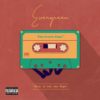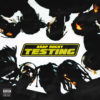 One of the best things to have happened to the Ghana music industry is The Emergence Of Drill Music In Ghana And Its Impact. Drill music, a genre characterized by its dark and gritty lyrics, has become increasingly popular in Ghana in recent years. The genre, which originated in Chicago in the early 2010s, has now spread to various countries across the globe, including Ghana.
One of the best things to have happened to the Ghana music industry is The Emergence Of Drill Music In Ghana And Its Impact. Drill music, a genre characterized by its dark and gritty lyrics, has become increasingly popular in Ghana in recent years. The genre, which originated in Chicago in the early 2010s, has now spread to various countries across the globe, including Ghana.
Drill music initially emerged in the Chicago neighborhood of Englewood as an offshoot of gang culture. Its characteristic sound, with its heavy bass and ominous melodies, quickly gained traction and began spreading to other cities in the United States. It wasn’t long before drill music had become a global phenomenon, with artists from the UK, France, and beyond incorporating sound and style into their own music.
In Ghana, the emergence of drill music has been heavily influenced by the country’s dynamic youth culture. Indeed, Ghana’s vibrant music scene has produced a wide range of styles, from highlife and hiplife to afrobeats and gospel music. With its raw energy and gritty lyrics, drill music has added a new dimension to Ghana’s diverse musical landscape.
One of the most notable figures in Ghanaian drill music is the artist Yaw Tog. The Kumasi-born rapper burst onto the scene in 2020 with his single “Sore”, which quickly went viral and garnered millions of views on YouTube. The track’s hard-hitting lyrics, delivered in a fierce and unrelenting style, helped to establish Yaw Tog as one of the most exciting young talents in Ghanaian music.
Since then, other artists have emerged on the Ghanaian drill scene, each bringing their own unique take on the genre. Some, like Kwaku DMC and Kofi Jamar, incorporate local dialects and slang into their lyrics, creating a sense of authenticity and connection with their audience. Others, like Amerado and Ypee, blend drill with other genres, such as hiplife or afrobeat, to create a distinct sound.
Drill music on its own was seriously pioneered in Ghana by the Asakaa boys group who still holds the wheels of the genre to this day. The Asakaa Boys are a collective of rappers and producers from Kumasi, Ghana, who started making music together in 2019. The group includes O’Kenneth, Jay Bahd, Kwaku DMC, City Boy, Reggie, and others. Their music is characterized by heavy beats, fast flows, and aggressive lyrics that reflect the realities of life in the streets of Ghana.
Asakaa Boys draw inspiration from UK drill artists like Headie One and US drill artists like Pop Smoke, but they also incorporate Ghanaian culture and slang into their music. They often rap in the Twi language, one of the most widely spoken languages in Ghana. Their music reflects the struggles of young people in Ghana, including poverty, unemployment, and social inequality. They have a growing fan base in Ghana and have even caught the attention of international rappers like Stormzy and Skepta.
As drill music has gained popularity in Ghana, it has also begun to spread to other countries in Africa. In Nigeria, for example, artists like Ruger and Cheque have incorporated elements of the drill into their own music, while in South Africa, the genre has gained a following among the country’s youth.
The emergence of Asakaa music in Ghana has had a significant impact on Ghanaian popular culture. The music has become the soundtrack of the youth in Kumasi and other parts of Ghana, with young people adopting the fashion, slang, and lifestyle of the Asakaa Boys. The music has also created new opportunities for young artists in Ghana who may have previously struggled to get their music heard.
In addition to influencing popular culture, Asakaa music has also had a positive impact on the local economy. The Asakaa Boys have organized concerts and events that have attracted large crowds and generated revenue for local businesses. They have also collaborated with popular Ghanaian brands like Kpoo Keke and Asaase Radio to promote their music and expand their reach.
However, the Asakaa movement has not been without controversy. Some critics have accused the artists of promoting violence and criminal behavior through their music. Others have criticized the use of drugs and explicit lyrics in the music. The Asakaa Boys have defended their music, stating that it reflects the reality of life in the streets and that they are simply telling their stories.
Despite the criticism, the Asakaa movement continues to grow in Ghana and beyond. Their music has become a symbol of youth culture and urban life in Ghana, and their influence on Ghanaian popular culture cannot be ignored. Asakaa music represents a new wave of creativity and innovation in Ghanaian music, and it is exciting to see where this movement will go in the coming years.






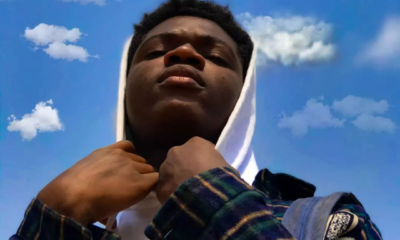
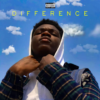



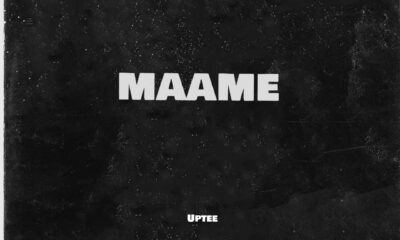
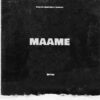


 One of the best things to have happened to the Ghana music industry is The Emergence Of Drill Music In Ghana And Its Impact. Drill music, a genre characterized by its dark and gritty lyrics, has become increasingly popular in Ghana in recent years. The genre, which originated in Chicago in the early 2010s, has now spread to various countries across the globe, including Ghana.
One of the best things to have happened to the Ghana music industry is The Emergence Of Drill Music In Ghana And Its Impact. Drill music, a genre characterized by its dark and gritty lyrics, has become increasingly popular in Ghana in recent years. The genre, which originated in Chicago in the early 2010s, has now spread to various countries across the globe, including Ghana.



